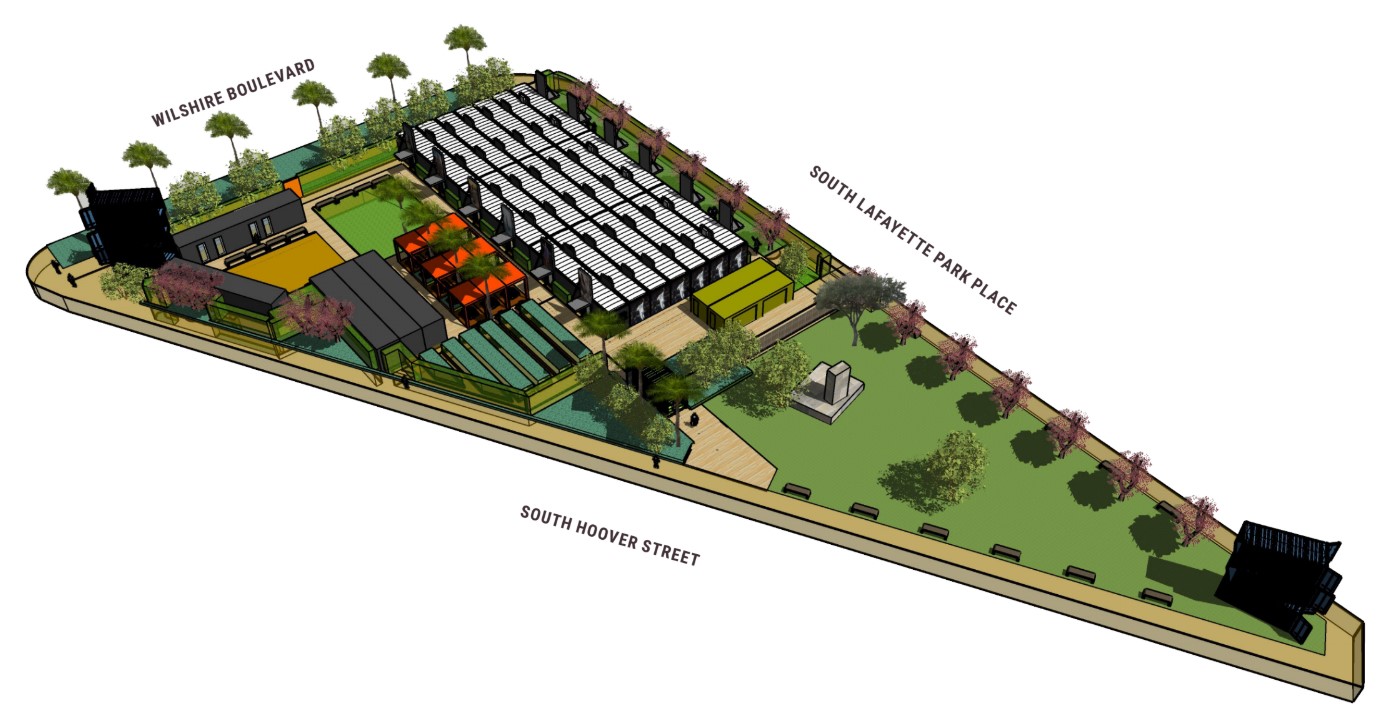The city of Los Angeles' Lafayette Park Triangle bridge housing project is under construction and expected to open in early 2020. The project there grew out of a contentious effort to build homeless housing in Koreatown. Ktown for All organizer and co-founder Michael Dickerson calls the project "absolutely necessary... and absolutely insufficient" for addressing the area's large and growing homelessness issues.
The project is part of the city of Los Angeles' A Bridge Home championed by Mayor Eric Garcetti and funded primarily by Measure HHH. The initiative is intended to quickly build temporary housing for people experiencing homelessness. Bridge housing facilities are primarily on land already owned by the city, and temporary - designed to last three years.
Bridge housing differs from traditional homeless shelters in that residents have assigned living quarters, so un-housed people do not gather to enter or exit all together at set times. Bridge homes feature wrap-around services for residents: case management, mental health care, substance abuse treatment, and housing placement. Services are designed to help people find more permanent homes, generally in supportive housing.
The mayor and city council have committed to building bridge housing in all fifteen council districts in order to serve un-housed people throughout the city. The first L.A. City bridge housing project, El Puente, opened in September 2018. To date, the city has completed nine of 26 planned bridge housing projects.
Despite broad public support for funding efforts to end homelessness, proposed supportive homes often encounter pockets of vocal resistance expressing various versions of "not in my backyard," also known as "nimby." This has been the case in Venice, Sherman Oaks, Echo Park, and many other neighborhoods. The nimby efforts are still making headlines today in Chatsworth.
In 2018 City Council President Herb Wesson proposed siting Council District 10's bridge housing at a city parking lot in the L.A. neighborhood of Koreatown. The 682 South Vermont Avenue site is a block south of the Vermont/Wilshire Metro Red/Purple Line Station.
Several Koreatown leaders, including some of Wesson's political rivals, protested the project. Ultimately that nimby backlash killed the housing proposed for the Vermont Avenue site.
That sad divisive conflict did have a few positive outcomes: Wesson's CD10 is now nearing completion of two bridge housing projects. More on these below.
And Koreatown grassroots anti-nimby counter-protestors formed the group Ktown for All.
When some Koreatown leaders led protests against the Vermont Avenue housing facility, Ktown for All hosted counter-protests welcoming the needed city bridge housing. As Dickerson describes it, "facilities like this are not a threat to our neighborhood; they're a boon to our neighborhood."
Though Ktown for All lost its initial battle, it has grown into an organization that continues to play an important part in combating homelessness. It does weekly on-the-ground volunteer outreach in support of Koreatown folks experiencing homelessness, and has emerged as a progressive voice in city housing/homelessness policy debates, including suing to change the city's draconian sweeps practices.
Ktown for All is active on social media, including Twitter, Instagram, and Facebook. Interested readers can sign up for its mailing list via the organization's website.
When Wesson retreated on the Koreatown bridge housing site, he regrouped and instead decided to pursue two other Council District 10 sites.
The larger of the two CD10 sites is called the Lafayette Park Triangle. Though this site is only four blocks east of the original Koreatown location, it is located outside of Koreatown, in the adjacent Westlake-MacArthur Park neighborhood.
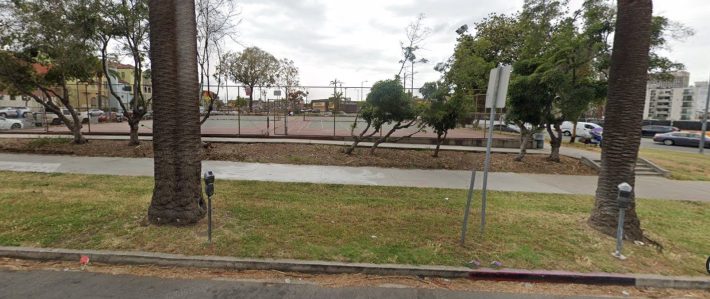
The main portion of Lafayette Park is north of Wilshire Boulevard, with only the small triangle south of Wilshire - bounded by Wilshire, Hoover Street, and Lafayette Park Place. Historically, the triangle was home to two underused, fenced tennis courts, a statue, and several small grass lawn areas.
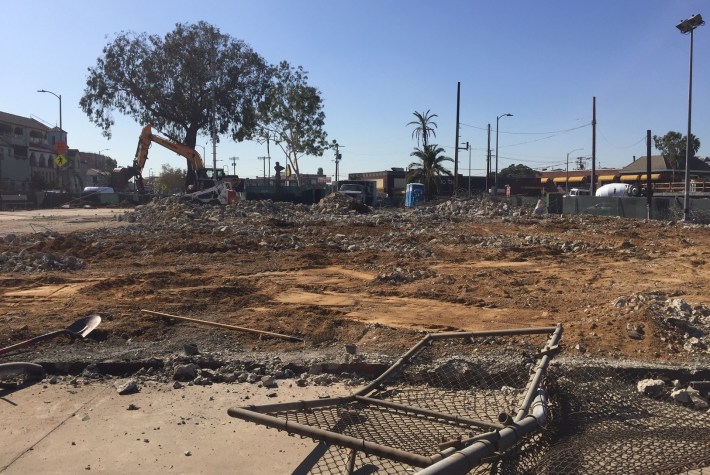
Bridge housing construction is already underway at the Lafayette Park Triangle. The site is fenced off and the tennis courts have been demolished.
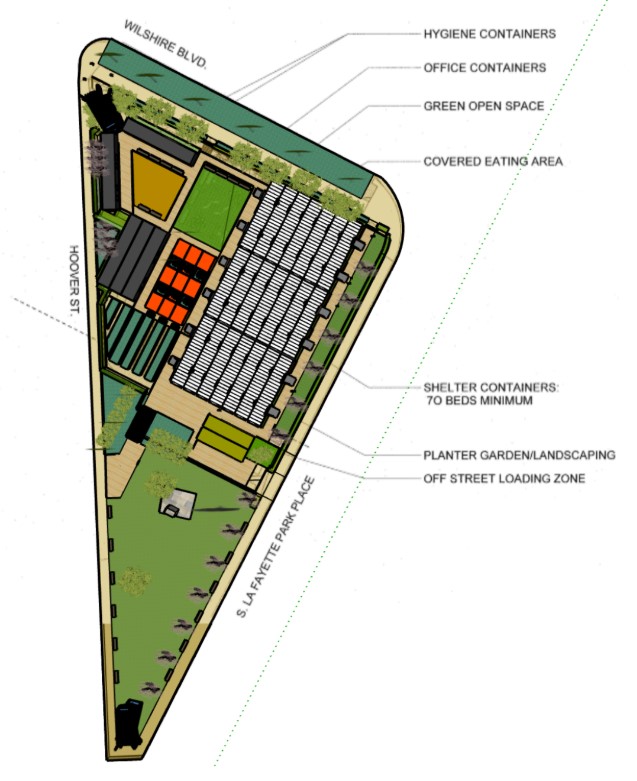
The $5.5 million Lafayette Park Triangle bridge housing facility will house seventy people.
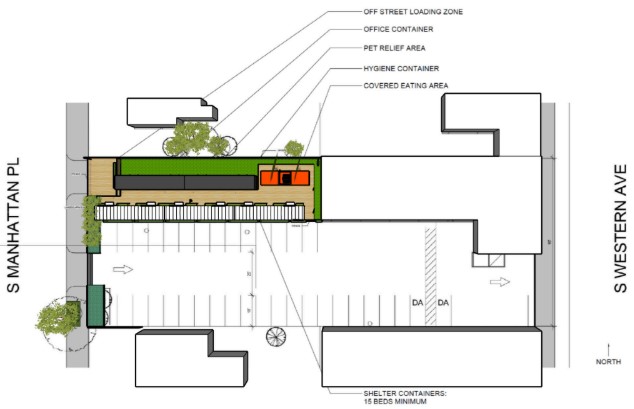
Wesson is also building a smaller bridge housing project in the parking lot of his district office at 1819 S. Western Avenue, in the Harvard Heights neighborhood. That $1.5 million facility will house fifteen people and will serve single females with children.
Both of these sites are near Koreatown, but not quite in that community.
Both sites feature innovative designs using shipping containers as a way to build quickly and cheaply.
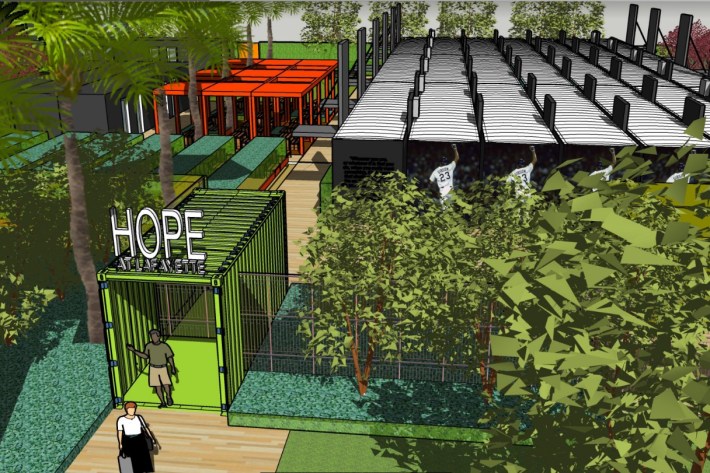
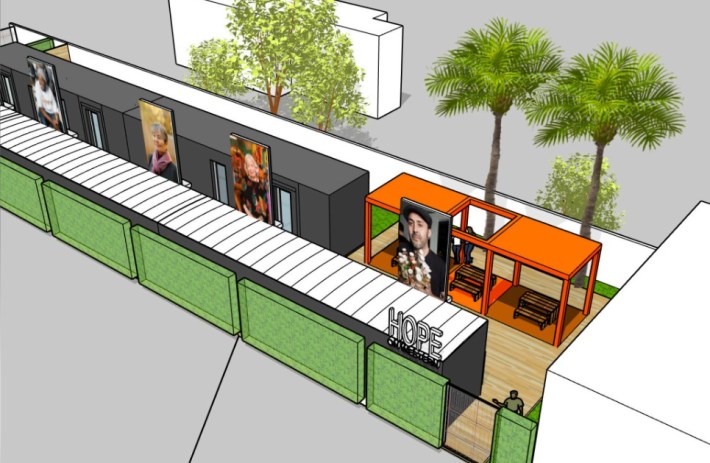
Despite the quick and cheap intentions, community approval processes and an overheated construction market has made bridge housing, in the words of Dickerson, "disappointingly slow to go up." The city is now preparing the site, and anticipates that shipping containers will arrive soon from overseas.
Ktown for All's Dickerson expresses some optimism about the situation, noting that the "conversation on homeless has changed a lot since we got started [in 2018.]" He cites city councilmembers pushing back against heavy policing of encampments. He notes that "some of the people who were involved in Koreatown's anti-shelter campaign, and are now running for office, are now aggressively portraying themselves as pro-housing left candidates. [Anti-shelter protest leader] Jake Jeong is running for supervisor in our area, and he's now courting the L.A. Tenants' Union."
